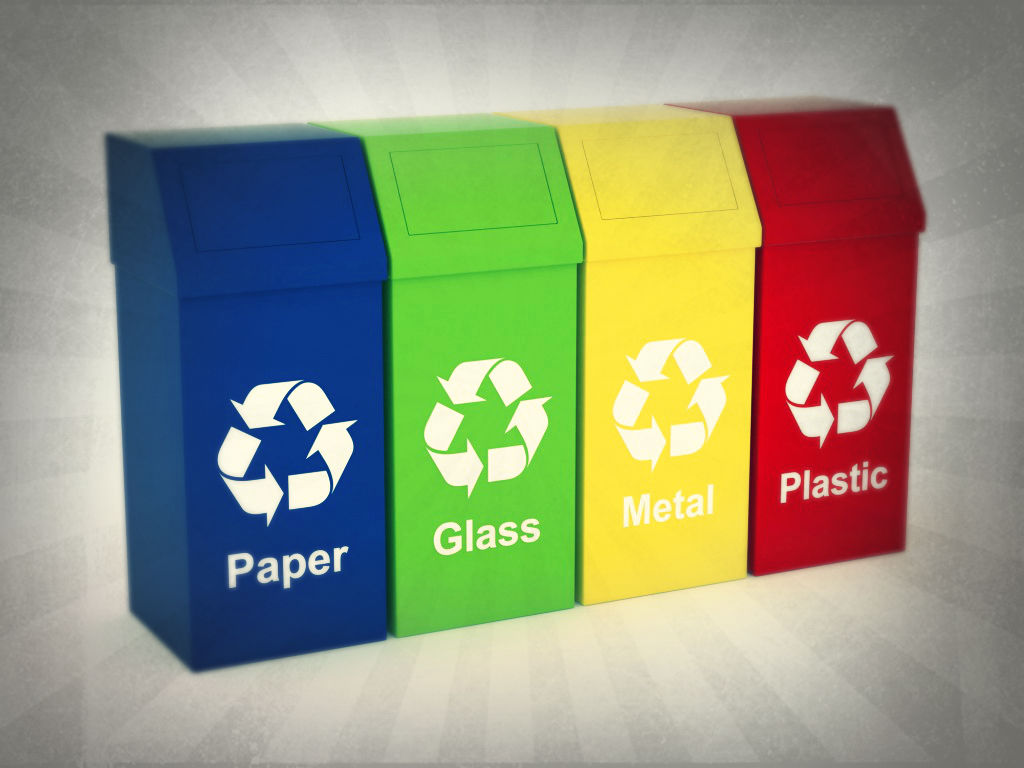Glass recycling is a simple way to make a beneficial contribution to preserving our environment. Let’s take a look at some the benefits of glass recycling.
- Recycling helps cut back on new materials and thus preserve natural habitats, forests, rainforests, and give the Earth a chance to grow and heal. Incredible Benefits of Recycling 1. Reduce the Size of Landfills. One of the biggest reasons why recycling has been promoted is that it does reduce the strain on our environment. By utilizing waste products in a constructive way, we can slowly.
- 6 Economic Benefits of Recycling Just because recycling takes a bit more time to gather enough materials to create products and goods doesn’t mean the economy slows down. In fact, multiple studies from governmental and environmental agencies report that increasing activity in recycling boosts the quality and quantity of available jobs.
It seems that no clean energy discussion is complete without everybody’s favorite pastime: recycling.
In its simplest definition, recycling is converting waste product into reusable material. Instead of being taken to a landfill to sit and rot the Earth for years to come, it gets singled out and repurposed for another use.
This might seem like a no-brainer. If it meant saving the planet, why wouldn’t you take that extra couple seconds thinking which trash can you throw your garbage into? Unfortunately, it’s not always that simple, which leads to compelling arguments on both sides.
I’ve visited friends’ houses where uttering the term “recycling” doesn’t even dignify a response. It’s just something they could care less about.
On the flip side, I’ve also been at friends’ houses where a question such as “do you guys recycle?” sparks an hour long debate. Not recycling at their place is considered a sin.
Those against recycling don’t really seem to reject the act itself, they just don’t believe the value you get out for the effort that’s put in.
Those for recycling see things a totally different way. It makes them feel empowered in taking a small step towards a cleaner planet, among other things.
With so many people on either side of the fence when it comes to recycling, we thought it best to lay it all out on the table. In this article, we’re going to take a closer dive into the advantages and disadvantages of recycling.
Let’s get started.
Advantages
Almost no one doubts that recycling & composting has its benefits. The primary question then becomes, “is it worth it?”
Recycling is considered one of the best things we can do as individual citizens to decrease pollution on our planet. It’s notably very environmentally friendly, and it reduces our energy consumption on a global scale.
There are quite a few other benefits to recycling as well, which we’ll get into in the paragraphs to follow. We will also be taking a closer look at the few advantages listed above.
Without any further ado, we present to you the advantages of recycling.
1. Reduced Energy Consumption.
This first benefit is what catapults recycling into the discussion of green energy.
As humans, our demand for energy is ever-increasing. This continues to be the case as more countries are being modernized and introduced to the wonderful world of technology.
Recycling plays its part in the green energy debate by reducing the amount of energy required to manufacture certain products. This reduces greenhouse gas emissions generated by the manufacturing process and lowers global energy consumption.
As consumers, you’ll be happy to know that you immediately see the impact through lower prices.
When you recycle, you also eliminate the need for manufacturers to acquire raw materials through processes such as mining and refining. They’ve already got the material they need from you, so it’s just a matter of repurposing it.
2. Decreased Pollution.
Coke bottles, soda cans, and those plastic ring holders. What do all of them have in common?
They’re categorized as industrial waste, which is the primary source of pollution to our planet in today’s world.
By recycling, you drastically reduce the amount of industrial waste. Instead of those soda cans going into a landfill to clutter the Earth, they’re taken back to the manufacturer to be broken down and reused.
The less waste we throw onto the planet, the cleaner and safer it will be for future generations to come.
3. Considered Very Environmentally Friendly.
The Amazon rain forest continues to be bulldozed over in record amounts. Why? To make more of our precious paper products.
Recycling is an act that can heavily impact the deforestation problem on Earth. Recycled paper products mean less trees that need to be cut down and processed.
This alone is one of the major reasons pro-recyclers feel so empowered chucking their used materials into that blue bin. Every time you do it, you’re potentially saving a tree from being cut down.
4. Slows the Rate of Resource Depletion.
Sooner or later, the Earth is going to run out of raw materials. It might not be for a long while, but the concern is still there.
By recycling, you limit the need to mine and use those raw materials to make new products. Instead, your recycled material is used.
Can you imagine how many natural resources we would conserve if everybody on the planet recycled?
5. Fights Global Warming.
Global warming continues to be a heated debate topic across the planet.
We’ve already mentioned earlier one way that recycling reduces greenhouse gas emissions. The other way is by reducing the amount of waste that’s burned when it’s time to clear some space.
Burning piles of waste leads to toxic emissions, which accelerates the rate at which our planet is warming up.
By recycling, less material becomes waste that needs to be burned, and it’s instead used in ways that are much more beneficial to the environment.
6. Decreases Landfill Waste.

We’ve already indirectly mentioned it a couple of times through the advantages, but we feel it deserves its own spot in the limelight.
Recycling used products means less trash into landfills. This is a very good thing since landfills slowly destroy the natural environment. Simply put, we don’t want them to keep growing.
Already existing recycling programs prevent tons of waste from being dumped into landfills each year, and they’re only getting better.
Disadvantages

Now let’s get into the interesting side of recycling.
Mostly everyone knows at least something about its advantages, but not many understand its disadvantages.
Like any topic worthy topic of debate, there are both positives and negatives to consider.
Recycling isn’t always a cost effective option. It’s similar to wind and solar in that it’s benefits are well-known, but it’s just not the most financially appealing choice.
There’s also a quality issue to consider. Recycled products aren’t as durable as newly processed material. They don’t last as long and tend to be of lesser quality.
These are just a few of the disadvantages that we’ll discuss in more detail below.
1. Recycling Isn’t Always Cost Effective.
There are many hidden costs and processes associated with recycling. After all, someone has to take the time handling recycled products.
In addition to trash simply going to a landfill, recycling adds a few other processes into the loop. There are the recycled goods that get sent to the manufacturers to repurpose. Then there are the ones that need to go to a new factory all-together.
That’s an extra catch with recycling. In order to repurpose certain recycled materials, separate manufacturing plants need to be built and used. This would counteract the advantage recycling has of creating less pollution, since more may actually be generated as a result of the additional factory.
2. High Up-Front Costs.
Let’s just get the two financial issues out of the way first.
Establishing new recycling protocols often involves a high initial cost. Recycling isn’t a process that just happens. There are units that need to be set up, factory upgrades that need to be made, and attaining trucks to haul the recycled material.
A recycling program can be a significant investment for an institution or facility to make. Is it worth it to eat the high costs to impact the planet in such a small way over a long period of time?
3. Needs More Global Buy-In.
Not many would argue that recycling is generally considered a good thing.
It is certainly a critical step that the global population has to make to reduce pollution, but there’s a catch – a lot more people need to start participating.
Recycling is most often prevalent in homes, schools, and some office parks. The kind of recycling that occurs is putting used paper products into blue bins and hauling them away for reuse.
This impact is rather small compared to the massive amounts of waste and deforestation taking place on an industrial-type level.
As citizens of the world, it can be frustrating. We try to make an individual, positive contribution, but it fails in comparison to the widespread pollution in effect.
4. Recycled Products Are Often of Lesser Quality.
Let’s say you’re in the market for a new pair of running shoes. You could go to the store, grab a freshly made pair with a brand new sole, or you could find a nice used pair instead.
Which do you think is going to last longer?
The same theory holds true for recycled products. Products made from used, repurposed materials simply don’t stand up quality-wise to new material.
They’re often fragile and overused. The more a piece of material gets recycled, the worse it gets.
5. Recycling Sites Are Commonly Unsafe.
Material thrown into the recycling bin is another form of trash. As with any waste, it has to be transported and processed somewhere.
This means creating additional locations of potentially hazardous waste. These heaps of trash are grounds for bacteria, disease, and a laundry list of other unsafe conditions.
In addition to this, recycling sites are also industrial plants. This means they are not without their own forms of pollution.
As is often the case with recycling sites, waste produced is frequently mixed with large bodies of water, leading to broader scale pollution. Quite the opposite effect of what recycling advocates are going for.
Conclusion
Hopefully the next time you find yourself in a heated debate about recycling, you’re much better equipped to participate.
Recycling’s advantages are more commonly known. It reduces our energy consumption on a global scale. It also decreases pollution, slows the rate of resource depletion, and contributes to fighting global warming.
The question usually isn’t whether recycling is advantageous, but whether or not it’s worth it.
Benefits Of Recycling Aluminium
As we’ve learned, recycling comes with high costs. More often than not, the long term benefits of recycling fail in comparison to the high initial investment. This is also due to the fact that recycling hasn’t yet become the norm.
Until the majority of the global population accepts recycling, it’s positive impact on the Earth will continue to be a topic of contention.
Why We Need To Recycle
Where do you stand on the matter?
Resources
Featured Image Credit: Kevin Dooley @ Flickr